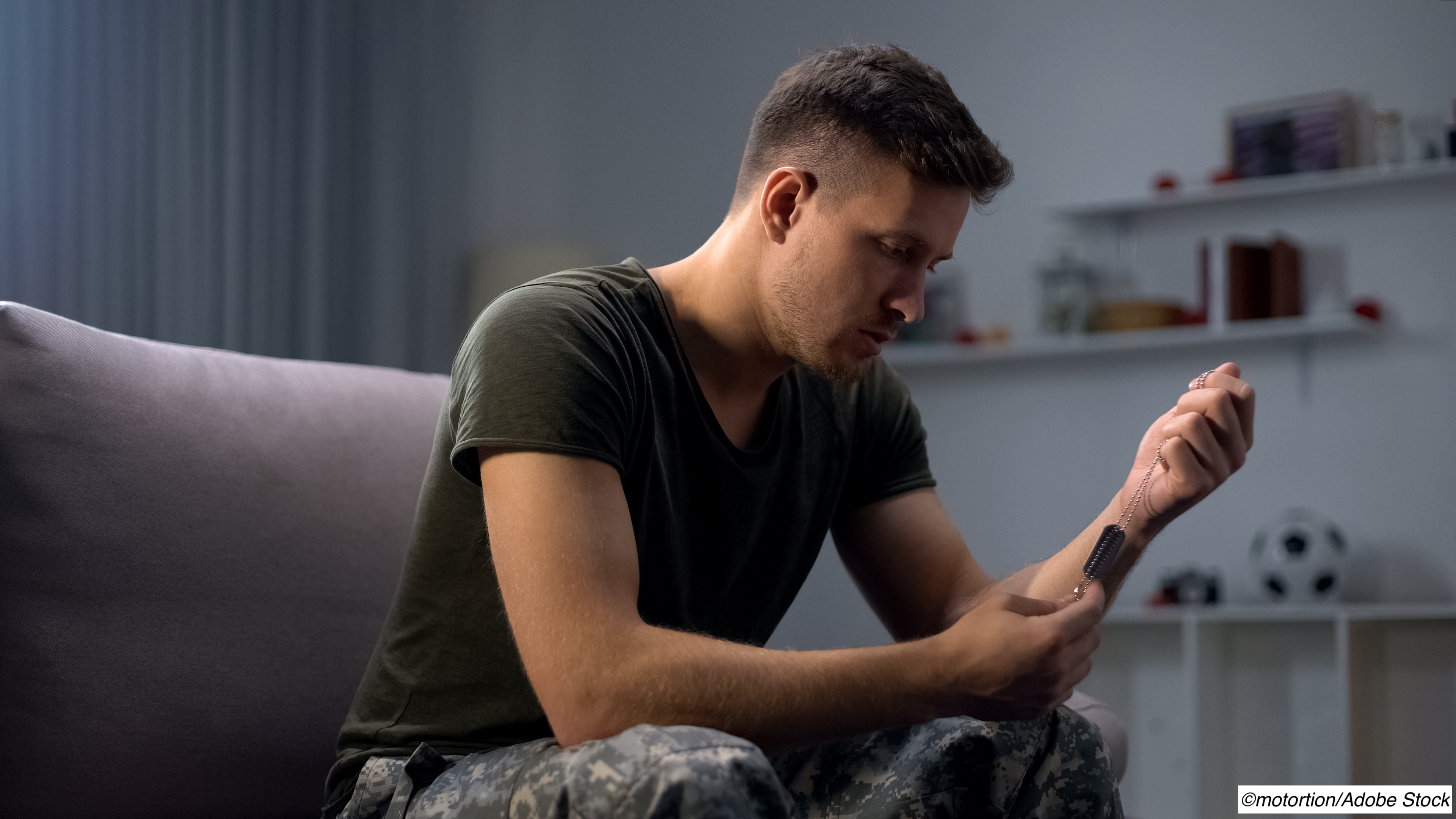
For U.S. veterans with depression or bipolar disorder who had a recent episode of suicidal behavior or an inpatient admission to prevent suicide, adding lithium to an existing treatment regimen did not reduce additional suicide-related events, a randomized clinical trial found.
No overall difference in repeated suicide-related events, including death by suicide, was seen for lithium versus placebo, with rates of 25.5% for lithium and 23.5% for placebo (HR 1.10, 95% CI 0.77-1.55), reported Ryan Ferguson, MPH, of VA Boston Healthcare in Boston, and co-authors.
“To our knowledge, this is the largest randomized clinical trial of lithium to date that examines suicide-related behaviors as the primary outcome,” the researchers wrote in JAMA Psychiatry.
They classified suicide-related events as “suicide attempts, interrupted attempts, hospitalizations to prevent attempts, or deaths from suicide.”
“The findings of this study suggest that in patients who are actively being treated for mood disorders and substantial comorbidities, simply adding lithium to existing medication regimens is unlikely to be effective for preventing a broad range of suicide-related events,” they added.
The trial looked at 519 U.S. veterans with bipolar disorder (15.4%) or depression (84.6%). Participants were screened between July 2015 and March 2019, and randomized to either extended-release lithium carbonate beginning at 600 mg/d with upward titration or placebo. Lithium or placebo was added to usual care, which included medications in addition to psychosocial and rehabilitation treatments.
All participants had survived a recent suicide attempt, interrupted attempt, or hospitalization to prevent suicide and were followed for these outcomes as well as for death by suicide. Mean total follow-up was 313 days for the lithium group and 320 days for the placebo group.
Participants had a mean age of 42.8 and 84.2% were male. Other psychiatric disorders included post-traumatic stress disorder in 59.7% of the overall cohort, panic disorder in 8.9%, generalized anxiety in 27.2%, alcohol abuse/dependence in 48.4%, other substance use/dependence 36.4%, and personality disorder in 12.9%. Median number of lifetime suicide attempts was two.
The trial was stopped for futility after the 519 participants were randomized; the lithium and placebo groups included 255 and 264 participants, respectively. Mean treatment exposure was 6.7 months for those with depression and 5.6 months for those with bipolar disorder. Mean lithium concentrations at three months were 0.54 mEq/L for patients with bipolar disorder and 0.46 mEq/L for patients with major depressive disorder. Less than half (48.1%) of participants’ serum lithium concentrations were 0.5 mEq/L or greater.
A total of 127 participants (24.5%) had suicide-related outcomes: 65 in the lithium group and 62 in the placebo group. There were 21 acts considered suicide attempts, 28 considered interrupted acts, and 73 hospitalizations with a goal of preventing suicide. There were four suicides, with one in the lithium group, but the difference was not statistically significant. No unanticipated safety concerns were observed.
“In our opinion, this rigorously designed and conducted trial has much to teach but cannot be taken as evidence that lithium treatment is ineffective regarding suicidal risk,” wrote Ross Baldessarini, MD, and Leonardo Tondo, MS, MD, both of Harvard Medical School, in an accompanying editorial.
They pointed to limitations of the trial, including low circulating concentrations of lithium, with fewer than 50% of participants attaining a level of 0.5 mEq/L. Adherence to prescribed lithium or placebo was considered adequate in only 17% of participants, and a majority (68%) of those receiving lithium correctly guessed their assignment.
Moreover, attrition was high and treatment exposure was brief, the editorialists noted. Many participants also had co-occurring psychiatric disorders associated with suicide, including anxiety disorders, personality disorders, and a high rate of substance abuse, they added.
“The new trial did not find evidence of an anti-suicidal effect of adding lithium to complex treatment regimens in relatively small numbers of mostly male veterans with complex, although realistic, psychopathological conditions, given relatively brief treatment with low circulating levels of lithium,” Baldessarini and Tondo observed. “Thus, its findings cannot be taken as evidence that lithium lacks anti-suicidal effects.”
“An ironic final note is that recruiting participants to such trials may be made difficult by an evidently prevalent belief that the question of anti-suicidal effects of lithium is already settled, which it certainly is not,” they wrote.
“In 2013, when this trial was planned, meta-analyses of trials of lithium versus placebo or active comparators that included patients with bipolar disorder or depression, most conducted to evaluate other outcomes, found that suicide was less common in patients receiving lithium than comparators,” Ferguson and colleagues stated. “The most recent meta-analysis available at that time did not find differences for nonfatal deliberate self-harm.”
More recent meta-analyses that were limited to studies of patients with major depression raised questions about the association between lithium use and deaths from suicide, the researchers pointed out. Nonetheless, the 2019 VA/U.S. Department of Defense Clinical Practice Guideline for Assessment and Management of Patients at Risk for Suicide suggested the use of lithium alone (with bipolar disorder) or with another psychotropic agent (with unipolar depression or bipolar disorder) to decrease the risk of death by suicide in patients with mood disorders, they noted.
-
For U.S. veterans with depression or bipolar disorder who had a recent episode of suicidal behavior or an inpatient admission to prevent suicide, adding lithium to an existing treatment regimen did not reduce additional suicide-related events, a randomized clinical trial found.
-
The trial had important limitations, including low circulating concentrations of lithium: less than half (48.1%) of participants’ serum lithium concentrations were 0.5 mEq/L or greater.
Paul Smyth, MD, Contributing Writer, BreakingMED™
The study received support from U.S. Department of Veterans Affairs. The editorial was supported by the Bruce J. Anderson Foundation, the McLean Private Donors Fund for Psychiatric Research, and the Aretaeus Foundation of Rome.
Ferguson reported no conflicts of interest.
Baldessarini and Tondo reported no conflicts of interest.
Cat ID: 146
Topic ID: 87,146,730,192,146,54,55,925


